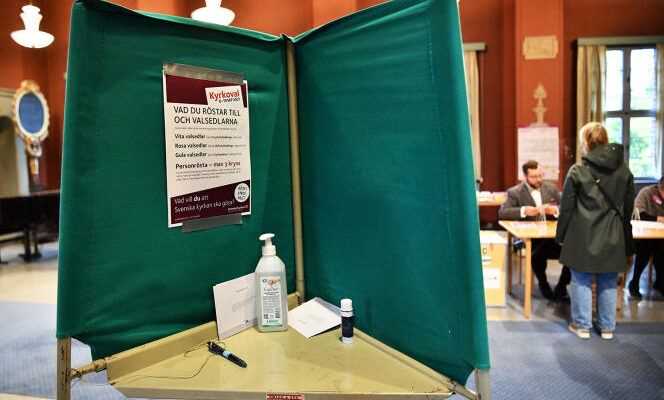STOCKHOLM LETTER
Founded in 2018 by far-right defectors (Sverigedemokraterna, “The Democrats of Sweden”), the organization Alternativ för Sverige (AfS) had never won an electoral mandate. This is what has been done since Sunday, September 19: after the elections for the Church of Sweden, the nationalist formation won 3 of the 251 seats at the synod, the highest body of the Evangelical Lutheran Church.
Since 1931, elections have been held every four years. Only members of the Church can vote, that is, Swedes who annually pay church tax (about 0.25% of their income). In the early 1970s, more than 95% of the country’s inhabitants belonged to the Lutheran Church. Their number has since collapsed, even though they are still close to 5.8 million (in a country of 10 million inhabitants).
This year, 850,000 Swedes came to vote in churches across the country. Voters had to slip three ballots into the ballot box: a blank to designate members of the parish council (local level), a pink to elect those of the diocesan council (regional) and a yellow for the synod at the national level. All of these committees are primarily responsible for managing the budget, with no power, in theory, over theological matters, although their decisions often have an impact. In total, around 14,500 seats were to be filled.
Facade separation between Church and State
Coming from civil society – and not from the clergy – elected officials are referred to as “Kyrkopolitiker” – “political leaders of the Church”. Because, an additional incongruity, most Swedish political parties present candidates. It does not matter that Church and State have been officially separated since 1er January 2000. The cord has never really been broken, says Jan Strid.
The former lecturer at the University of Gothenburg sees as proof the law which still regulates the relationship between the State and the Church and proclaims that the latter must be a “Open People’s Church”. He recalled that the establishment of these elections in 1931 was “A way for the political parties, and in particular the social democrats, to control the Church”. And “It is for the same reasons that the system was maintained after 2000”, specifies the specialist.
Once again this year, the Social Democrats came out on top at the national level, with 27.6% of the vote, ahead of the organization Partipolitiskt obundna i Svenska kyrkan (“The non-partisans in the Church of Sweden”, POSK), created in 1987, the objective of which is to remove the Church from the influence of parties.
You have 53.43% of this article to read. The rest is for subscribers only.
